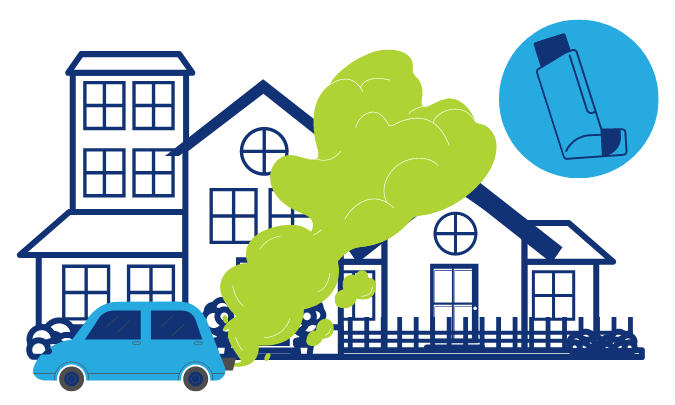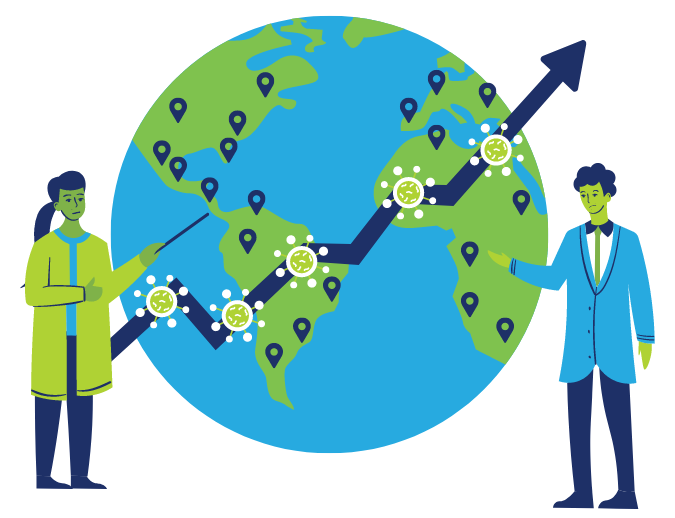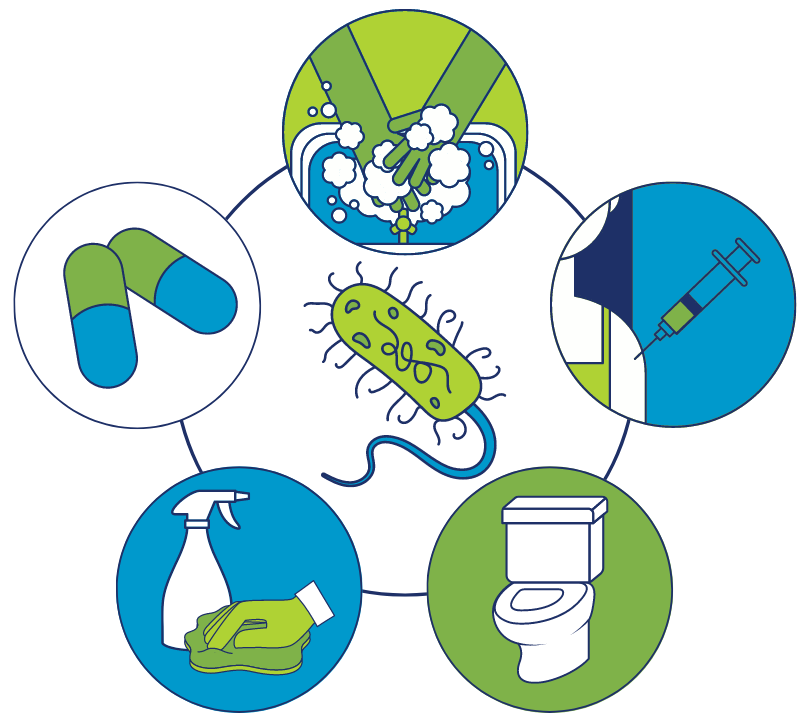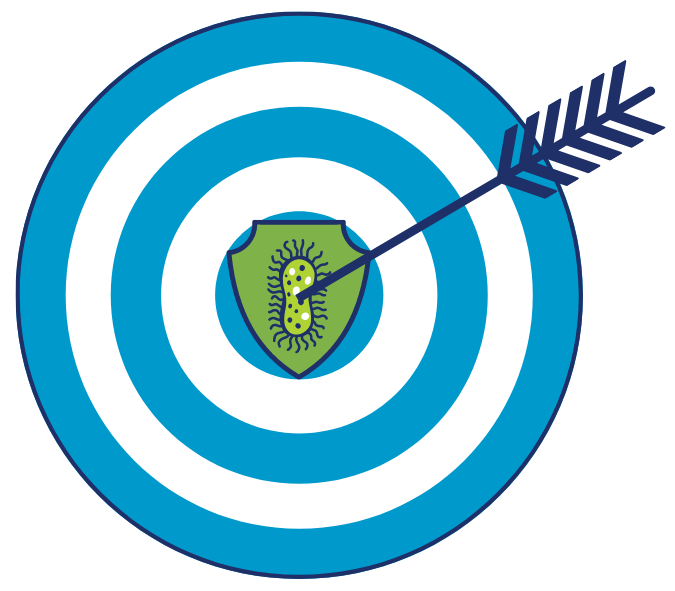
From the moment people discovered how to use penicillin, the first antibiotic, resistance has been a problem. Bacteria may be small, but they are not simple organisms and they have been fighting for survival for billions of years. Many bacteria have developed the tools they need to evade the effects of antibiotic treatments, and they can trade these weapons with other bacteria as they swap genetic material.
Bacterial infections aren’t new to humanity, and for more than two decades world health leaders have urgently warned about the threat of antibiotic resistance. Dr. Otto Cars is one of them. He is a senior professor of infectious diseases at Uppsala University in Sweden and the founder and senior adviser to ReAct – Action on Antibiotic Resistance.
In this episode of One World, One Health, Dr. Cars says he has hope for turning around the impending dystopia of a world without antibiotics. Listen as Dr. Cars outlines the history of the fight against antibiotic resistance, and what he hopes its future might be.
Learn more about the struggle to control drug-resistant bacteria, viruses, and fungi in some of our other episodes. We’ve spoken with experts about how vaccines can help prevent the spread of drug-resistant germs, about tracking superbugs in sewage, and the surprising rise of drug-resistant fungi. Experts in drug design have talked to us about the search for new and better antibiotics and how these little organisms are winning an arms race against us. Filmmakers have told us about how storytelling can help people understand the threat while global health specialists explained that good stewardship can keep the antibiotics we have working as they should. We’ve even investigated superbug mysteries, like the case of the killer eyedrops.
Maggie Fox 00:01
Hello and welcome to One World, One Health where we take a look at some of the biggest problems facing our world. I’m Maggie Fox. This podcast is brought to you by the One Health Trust with bite-sized insights into ways to help address challenges, such as infectious diseases, climate change, and pollution. We take a One Health approach that recognizes that everything on this planet — the animals, plants and people, and the climate and environment — are all linked.
Nothing demonstrates how everything on this planet is linked like the problem of antimicrobial resistance — the rise of drug-defying superbugs. Bacteria, especially, have outmaneuvered human efforts to fight them. We’ve done quite a few episodes of One World One Health, looking at the problem. In this episode, we’re chatting with Dr. Otto Cars, a professor of infectious diseases at Uppsala University in Sweden, and co-founder of ReAct – Action on Antibiotic Resistance. It’s a global network of researchers, physicians, and other experts working to educate the world about the problem and to help find better ways to fight it.
Otto, thank you so much for joining us.
Dr. Otto Cars 01:15
Thank you for having me.
Maggie Fox 01:17
You’ve been educating people about these dangers for many years, now. Can you tell us a little bit about how long you’ve been at this?
Dr. Otto Cars 01:26
Well, it’s a long story, really. I’ve been engaged in antibiotics and antibiotic resistance for many years as a young infectious disease doctor first. Then also as a researcher involved in antibiotic resistance. And then moving into policies in Sweden, where I was working on behalf of the Swedish government together with colleagues for many years on a strategy program for antibiotic use and resistance. But that also led to engagement internationally, such as with the WHO, the World Health Organization. As early as 2001, WHO had a global strategy for antimicrobial resistance published, but unfortunately, it wasn’t widely implemented, wasn’t financed, and there was only a very small team at WHO at that time working on this critical issue. So, I think that what happened was that we invited WHO to discussions and also our colleagues in Sweden and abroad and abroad, and we asked ourselves if there was a need for an independent international network to come around to try to push this issue forward. And I think the answer was yes. And that is how ReAct – Action on Antibiotic Resistance came about. And we are working with, as you say, with education, but we’re also working to try to help countries in the Global South, Latin America and Asia and Africa.
Maggie Fox 02:34
It’s not as if people haven’t been clear. Again, you’ve been working at this. WHO, even though it may be a small effort, has been saying since 2001 that this is an urgent problem. Why is it so difficult to get the world to listen and act on it?
Dr. Otto Cars 02:48
First of all, the situation is much better now than in 2001. When the global action plan was published in 2015, there was a trigger, and the momentum was really increasing — and we’re doing much better now. Although we’re sure we are still far from where we should be in managing this crisis. And I think one of the other causes for the answer to your question about why we haven’t gone so far is really the language that scientists are using, (as well as) the language that government and international organizations are using, (which) is really, really technical. It contains a lot of acronyms like AMR, and it contains a lot of bacterial names, and I think that hampers the understanding of the general public.
I recall a recent study that was done from 2019 to 2021 on the outreach on social media, on Twitter, X today, and they found that there were 70,000 engagements related to AMR. Then on other crises – the climate change interactions, there were like 3.5 million tweets. So that’s another dimension and how this is picked up in social media and reaching out to people. So, I think this is needed; we need to change and should have changed long ago really. We need to include social scientists, behavioral scientists, or anthropologists in this. We need to change how we describe this. I think we need to move from this technical language towards something that is more patient-centered, talking about diseases, what is really at stake here, diseases that both people and politicians know about, understand, and recognize.
So that’s really one thing, and the other thing is why we’re doing this: working to keep antibiotics alive, to guarantee access to these life-saving medicines, which is what people think they trust, and we trust. We count on these medicines to work, but we see how one by one they are losing effect. And then of course, a lot of discussions need to take place in countries where there’s a need to be contextualized, there are cultural beliefs (to consider), and so forth, all the way up. But generally speaking, I think we need much more effort to reach out for awareness raising and understanding.
Maggie Fox 04:55
Okay, what you’ve just said is music to my ears. I’ve been fighting against the use of these acronyms and academic jargon, like antimicrobial resistance, which is really hard for people to understand. Do you have a suggestion for some better words or some better language to use?
Dr. Otto Cars 05:10
Oh, that is the problem. I think there is really no one size fits all here. I think we just have to make people understand that this is about diseases that they know about like pneumonia, or new infections caused during operations. These are situations where we see the need for antibiotics in healthcare and where people believe that they will be available. This is the message that we have to convey. It’s really difficult to say that we cannot express it in one sentence or in one word, unfortunately. It needs to be a little bit longer than that.
Maggie Fox 05:44
You spoke about the irrational use of antibiotics. Can you tell us a little bit about what you mean when you say that?
Dr. Otto Cars 05:54
Yeah, that’s important that you bring this up. I mean, first of all, we need to look at the effectiveness of antibiotics as a global resource, maybe even a scarce resource today, which we need to take care of and be responsible for together all over the world. So having said that, of course, then we need to use them responsibly. You can call it rationally, or we can call it anything around those terms appropriate, and so forth. It’s difficult to have a very specific definition for this, but if we talk about wealthy countries, we could do better. We know that a lot of antibiotics are still used that are not necessary for viral infections like cough and cold, or influenza, and for patients for whom they have no effect. And also, for diseases that are self-limiting where antibiotics should not be a primary prescription. And I think the higher-income countries need to take a stronger lead, and they could do better. So in that respect, irrational (use) means not for the right purpose and maybe not the right antibiotic and maybe not in the right dosing, and so forth, also.
But it’s much more difficult to discuss this when it comes to resource-limited settings, for sure, where there is a weaker system and where we need to have antibiotics accessible without prescription because there are so few doctors to prescribe. We have what we call an access versus excess dilemma. We have to recognize that we cannot sort of put the same demands on these resource-limited countries; we need to support these countries with development of their systems. We need to secure access for everyone, including them. So, in that respect, irrational use could be quite a different thing. If you’re, for example, a mother with a feverish two-year-old child in her arms, maybe walking for two hours to a rural health center, and the diagnosis is unclear, you can’t say, “Come back tomorrow. If you look better, this is not working.” So we have to acknowledge that there must be some kind of overuse, although these countries also need to try to take as much responsibility as possible for controlling use.
Maggie Fox 07:52
Drug-resistant bacteria can cause some trouble in really surprising places. One of them I’ve seen, you talk about is in cancer patients. Can you talk a little bit about the trouble that they cause in people getting treatment for cancer?
Dr. Otto Cars 08:06
Yes, absolutely. I think that is really worrisome. Because if we see antibiotics as pillars, the cornerstones of any health system, they deal with the basic health care, common infections in society, but also anything around highly specialized medical procedures such as operations, transplants, etc., etcetera. And not least, modern medicine including cancer. Many of the bacteria that we see today cause sepsis. For example, bloodstream infections is coming from our own microbiome, the flora that we carry around in our gut. For example, during cancer treatment through radiation or synthesized drugs, it reduces the immune defenses, and these bacteria can be transported into the blood. This could also happen, of course, not only in major operations but also in cancer cases. We have seen that up to 10% of cancer patients are, in fact, dying from sepsis, not primarily from the cancer. And these sepsis cases could, of course, increase in both amount and difficulty to treat because of resistance. So modern medicine is at stake, basic medicine is at stake. In effect, we can see antibiotics as a natural component of the infrastructure of a health system because without them, we will have much higher levels of morbidity and mortality than we see today.
Maggie Fox 09:22
That’s the fear: that we won’t have antibiotics that we can use to treat people who are getting treatment for something else. How did the Covid-19 pandemic damage efforts to control antibiotic resistance? Has it affected these efforts?
Dr. Otto Cars 09:37
Yeah, absolutely. In both ways, both positively and I think also negatively. But I would like to mention the positive examples first because I think what happened during COVID was it raised a tremendously rapid understanding of how important health and health systems are and the need for prevention, the need to have access to treatment, and so forth. That really put Global Health much higher on the agenda than before. I think we could benefit from this when we’re trying to mobilize more action and awareness around antibiotic resistance.
Another positive effect of COVID was, I would say, unprecedented rapid collaboration around innovation for diagnostics, vaccines, and also treatments. This was mind-blowing, really! We need to have the same kind of feeling of urgency when we talk about the need for these kinds of technical tools, treatments, vaccines, and diagnostics, and also for antibiotics. So, I think we can benefit from that.
On the downside, it was difficult to diagnose a bacterial infection, and many patients with COVID got admitted to hospital with antibiotic treatment without needing it. There is a figure around 10 percent of patients with COVID who had superinfection with bacterial pneumonia, but up to 75 percent received antibiotic treatment. So that is, for sure, at least in the short term, driving resistance in the hospital setting forward.
Maggie Fox 11:00
And in order to deal with all of these things, a lot of people, including you, say we need a national action plan. What should something like that look like?
Dr. Otto Cars 11:10
The really good thing is that following the global action plan in 2015, and just a few years after, many countries took the responsibility to produce a national action plan. In fact, I think the figure now is that more than 170 countries around the world have a national action plan. The problem is that only 10% of these plans are fully financed for implementation. So, having said that, it’s, of course, a national responsibility to put all the elements in such a plan together, but it’s a huge effort and it’s a long-term journey, especially for the weaker economies. We need surveillance, we need antibiotic access, regulation, education, water, and sanitation. I mean, it’s really about building up a health system, especially a system for access to these drugs within the health system. So, it couldn’t be done in just one year or five years. It’s a continuous effort. I think what is happening now is there are plans, but unfortunately, many of them are still sitting in the ministries and there is little implementation. The possibilities for implementation are weak because of a lack of financing and also human resources, and that needs to change rapidly.
Maggie Fox 12:18
And you’ve got some hope that the United Nations might be able to help with all this.
Dr. Otto Cars 12:22
I think there was another meeting in 2016, which was fantastic because this was the first time where antibiotics and antimicrobial resistance were brought up to the highest political level in the world. And we saw a great number of countries were actively involved in producing this political declaration that resulted from this meeting. And it outlined a lot of what needs to be done and a lot of commitments from governments. There was some political will, but unfortunately, these commitments on financing or research and development and so forth have not been implemented at the pace that they should have.
So, my hope is that this time in September 2024 (at the 79th Session of the UN General Assembly (UNGA 79)), the temperature will be higher, the understanding of the urgency will be higher, and the commitments will be stronger and more concrete. And I think again, that if this political declaration could contain a common global vision that would be helpful, It could be reducing the mortality from resistant bacteria. It could be again securing equitable access to these fantastic medicines that we rely on. Financing for implementation of national action plans would need to be a strong component. And not the least a supporting mechanism for the weaker economies because the rich countries need to take the lead and lead the change to support the transformation of the systems that need to be improved. Then we need financing for research and development. And I think the level of global collaboration needs to increase because this is an area where we have lost a lot of time. We’re still using old technologies, while there are new ones. We need to speed up global collaboration and get these antibiotics, vaccines, and diagnostic tools that we need to the forefront of global collaboration. It could even take the form of a global research institute or some kind of water sanitation system, among other systems, that could save a lot of lives and should be a priority. And lastly, which was missed in the last iteration, we need to have a very transparent accountability mechanism to be able to follow up on the commitments that governments have made this time.
Maggie Fox 14:22
I know thank you so much for joining us.
Dr. Otto Cars 14:24
Thank you so much for having me.
Maggie Fox 14:25
Listeners, if you enjoyed this podcast, please share it. You can learn more about this podcast, and other important topics at onehealthtrust.org. And let us know what else you’d like to hear about at [email protected]. Thanks for joining us.
Dr. Ramanan Laxminarayan 14:44
Thank you for listening to One Word One Health, brought to you by the One Health Trust. I am Ramanan Laxminarayan, founder and president of the One Health Trust. You can subscribe to One Word One Health on Spotify, Apple Podcasts, or wherever you listen to podcasts. Follow us on social media @OneHealthTrust for updates on One Word One Health and the latest in research on One Health issues like drug resistance, disease spillovers, and the social determinants of health. Finally, please do consider donating to the One Health Trust to support this podcast and other initiatives and research that help us promote health and well-being worldwide.
Guest

Dr. Otto Cars is a specialist in infectious diseases and a former head of the Department of Infectious Diseases at Uppsala University Hospital 1991-1999. In 2003, he was appointed Professor of Infectious Diseases and Antimicrobial Resistance at Uppsala University. His research has focused on pharmacokinetics and pharmacodynamics of antibiotics, optimal antibiotic dosing regimens, resistance epidemiology, and antibiotic policies.
Dr. Cars led the Swedish strategic program against antimicrobial resistance (Strama) on behalf of the Swedish government between 1995- 2010. He served as an expert to the World Health Organization and several European Agencies and was as a member of the UN ad hoc Interagency Coordination Group on Antimicrobial Resistance (IACG). In 2013, he coordinated the Lancet Infectious Disease commission, “ Antibiotic Resistance – the need for global solutions .“ Dr.Cars was the founder in 2005 of the international network Action on Antibiotic Resistance -ReAct www.reactgroup.org) which is working on four continents as a catalyst, advocating for and supporting multilevel engagement on antibiotic resistance.
Credits
Hosted and written by Maggie Fox
Special guest: Otto Cars
Produced and edited by Samantha Serrano
Music composed and sound edited by Raquel Krügel
Transcript edited by Astha Singh







